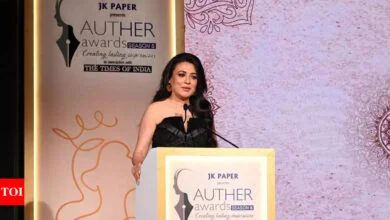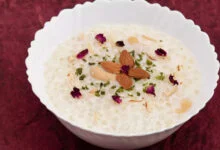Ramadan 2024: Foods to eat and avoid during Sehri | helobaba.com

Suhoor, or sehri, is an integral part of the Ramadan celebration. It is the last third of the night when people observing Ramadan fast perform prayer and eat food; they fast all day long without water until Iftar. The morning prayer is called the Fajr prayer (the first of the five daily prayers) and is taken as a blessing. Every city and every family follows a different set of food habits for Sehri and Iftar, but one thing that is common to all is the intent and belief that festivals do: they unite people together and beautify the essence of festivity.
Also Read: Why Muslims break their fast with dates
As per experts, Sehri, the first meal of the day should be balanced in terms of nutritional values to keep the body active throughout the day. Also, as people do not eat anything during the day and do not even consume water, it is suggested to avoid certain foods to balance the acid levels in the system. Take a look at the foods one should eat and avoid during Sehri.
Foods to eat during Sehri
Complex Carbohydrates: As per experts, foods that are rich in complex carbohydrates provide a steady release of energy. For instance, eating whole grains like oats, brown rice, barley, and whole wheat bread, or chapati, can help you be energetic throughout the day.
Fruits and Vegetables: Fruits and vegetables are rich in vitamins, minerals, and fiber. They also contribute to hydration. Opt for hydrating fruits like watermelon, oranges, and berries. Vegetables such as cucumbers, tomatoes, and leafy greens can also help keep you hydrated.

Protein-Rich Foods: Protein helps keep you feeling full and satisfied for longer periods. It is suggested to include sources of protein such as eggs, dairy products like yogurt and cheese, lean meats like chicken or turkey, fish, legumes (beans, lentils, and chickpeas), and nuts during Sehri to stay active.
Healthy Fats: Incorporating healthy fats into your Sehri meal can help you feel satiated. Avocado, nuts and seeds, olive oil, and fatty fish like salmon are good options that one can rely upon.
Hydrating Beverages: It is suggested to drink plenty of fluids to prevent dehydration during the fasting hours. Water is the best choice for hydration. One can also include hydrating beverages like coconut water, fruit juices (without added sugar), and herbal teas.
Dates: Traditionally, dates are consumed to break the fast during Iftar, but they can also be included in Sehri. Dates are rich in natural sugars, fiber, and nutrients, providing a quick source of energy.

Soups and Broths: Consuming soups or broths made with vegetables, lean meats, or legumes can help keep you hydrated and provide essential nutrients.
Whole Grain Cereals: Whole grain cereals like oatmeal or muesli are nutritious options for Sehri. They are high in fiber, vitamins, and minerals and provide sustained energy.
Foods to avoid during Sehri
Fried and Greasy Foods: Foods that are heavy in oil and grease can cause discomfort and may lead to thirst during the fasting hours; hence, consuming them during a Sehri meal is not suggested.

Sugary Foods: While a bit of sugar is fine, consuming overly sweet foods can cause fluctuations in blood sugar levels, leading to energy crashes later in the day. One should try to stick to natural sugar sources and avoid artificial sugar.
High-Sodium Foods: Foods high in salt can increase thirst and may lead to dehydration. As per experts, excessive intake of sodium may cause other health issues, and hence it should be avoided.
Spicy Foods: Spicy foods can cause discomfort and heartburn, especially on an empty stomach. It’s best to consume mild or moderately spiced foods during Sehri. One should avoid red chili powder and green chilli intake in Sehri.
Caffeinated Beverages: Drinks like coffee and tea, which contain caffeine, can lead to dehydration. While a small amount might be okay, excessive caffeine intake can increase thirst and also make you feel lethargic.

High-Fiber Foods: While fiber is generally good for digestion, consuming large amounts of high-fiber foods such as beans, lentils, and certain vegetables might lead to bloating and discomfort during fasting.
Processed Foods: Processed foods, such as packaged food, fast food, canned foods, and preservative-loaded foods often contain high amounts of unhealthy fats, salt, and additives, which may not be ideal for Sehri.
Mumbai Street Food Diaries: Ramadan Special- Malpua Rabdi at Mohd Ali Road









